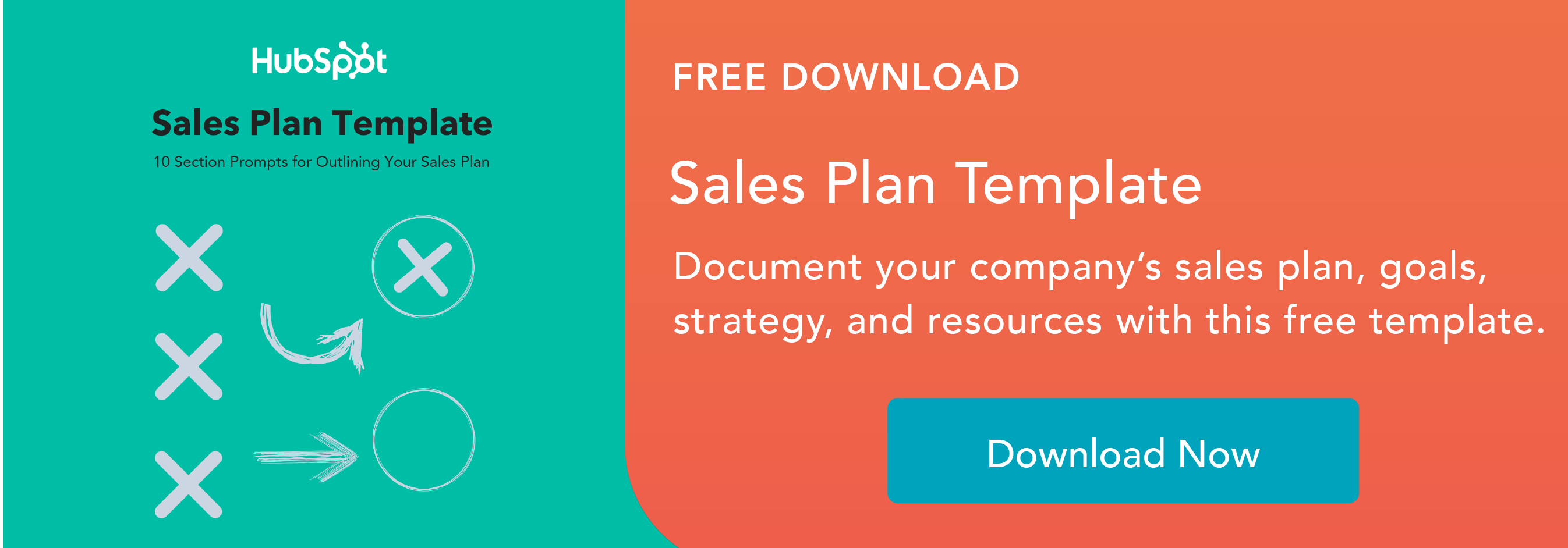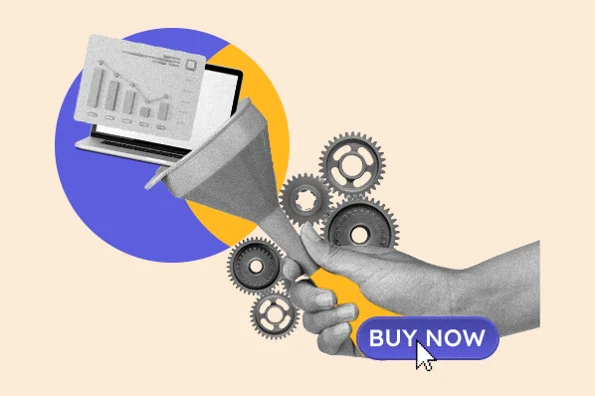If you’re not familiar with the term, an up-front contract is a verbal agreement reached between two or more people in advance that outlines what’s expected of both parties. In the inbound selling world, this contract unfolds in seconds.
We’ll get you up to speed on upfront contract best practices, their importance, and when to use them.
Skip to:
- Upfront Contract Definition
- Importance of Upfront Contracts
- Upfront Contract Techniques
- Examples
An upfront contract doesn’t mean that your prospect is signing a deal after an initial meet. Think of upfront contracts as a mutual agreement. It’s more of a mutual agreement where both parties understand what’s expected of them and any next steps.
Importance of Upfront Contracts
Upfront contracts set the expectations for what’s to come ahead of time and ensure everyone is on the same page. You can ask the prospect questions to make setting the contract up flow naturally. For example, you can ask them if they’d like you to follow up and what day or time works best.
That way, at the end of the meeting or call, you can say “Thank you for meeting with me. Just to confirm, I will follow up with you Tuesday at 3 p.m. to discuss the proposal and address any roadblocks.”
They are also helpful for you to get a better understanding of what a prospect’s needs are prior to sending a proposal. Taking this step will prevent launching into a proposal early that doesn’t align with the prospect’s needs.
When to Use Them
When should you use an upfront contract? Every meeting or call. As Sandler Training Consultant Joe Ippolito stated on the How to Succeed Podcast, it helps to think of an upfront contract as the book ends of a meeting — like the bread on a sandwich — it holds the important stuff together.
Make sure at the end of every call you have some sort of upfront contract for what happens next. This could be a mutual agreement to set up another meeting, send over a contract or nail down details for a follow-up.
If you're a coach or consultant applying the up-front contract approach to your discovery or intake sessions, having a formal coaching agreement or contract in place can further solidify expectations and build trust. This detailed coaching contract guide from Simply.Coach walks you through what to include in your agreement—from scope and responsibilities to cancellation clauses and confidentiality.
Your initial interaction with the prospect has to entice them enough that they want to be on that call or meeting with you. This isn’t something you can force. It has to be adapted to the situation. Next, we’ll look at some techniques you can use when setting an upfront contract.
Upfront Contract Techniques
There isn’t a one-size-fits-all approach for this. You’ll need to be nimble and adapt your upfront contract to each situation you encounter. Below are a few techniques you use when speaking to a prospect to get your upfront contract going.
1. Start with what Ippolito calls a ‘mini’ upfront contract.
For this, gauge the prospect's expectations at the beginning of your interaction rather than the end.
Example
“Hi [prospect name]. I know we have a 30-minute meeting scheduled, but before we get started, what you like to get out of the next half hour?
Get the prospect’s agenda instead of just laying out yours. This will help you later when you can include the prospect’s points in an upfront contract for next steps. It will also help you align your agenda with their goals, saving you both time.
2. Involve other stakeholders.
In order to get a deal done, more than likely your prospect is going to need to involve other stakeholders in the process. You can use this as an opportunity and basis for an upfront contract.
Example
“Thanks for evaluating the proposal. I know there are more stakeholders you need to talk to — how about we schedule a quick 5-minute check-in call to make sure everything’s on track? If we’re not, you can let me know the reasons why. If you are on board we can talk about next steps.”
This sets expectations for future interactions and will also help you address any concerns that may arise.
3. Use negative reverse selling to address potential concerns.
If you’re anticipating an obstacle, like pricing for example, you can create an upfront contract that addresses it.
Example
“Hey [prospect name]. Before I get started, here’s my biggest concern: We have competitive pricing, but we’re not the cheapest. How are you going to react at the end of this meeting (assuming all goes well) if we can’t come in at the lowest price?”
This opens the floor up for the prospect to communicate their concerns or offer reassurances and come to a mutual agreement about what will happen next in the process.
Upfront Contract Best Practices
To understand why the upfront contract is so essential, remember only one person can lead the discussion: The buyer or the seller. Obviously, you want to be the one leading the dance. The up-front contract is what allows you to do that.
To use the technique successfully, follow these three simple steps.
1. Show Appreciation and Set a Time Limit
Thank the inbound caller for his time and say how long you expect this call to take. Buyers will become irritated if they expect a five-minute discussion, only to realize it’s going to take far longer.
Have you ever gotten one of those emails asking you to do a survey that will “only take a few minutes of your time,” and then abandoned it around question #48? That’s not how you want the prospect to feel.
If this is an outreach call, tell the person how much time is needed before the first decision. If this is an inbound call, say how much time you will need to tell them about the offer.
Notice that you clarify how long the call will take before you move on to the next steps below. The goal here is simple: Make the caller feel comfortable.
You might say, “Thanks for getting on the call today, [prospect’s name]. This should take around 20 minutes.”
2. Provide an Agenda
Explain in a sentence or two what the call will go over and what your roles will be. An example might be, “We’re going to discuss your current methods for detecting spyware.”
3. Describe the Potential Outcomes
The up-front contract gives your prospect the chance to continue the sales conversation or walk away. Make sure you tell the buyer if she doesn’t like what she hears, it’s perfectly okay to tell you “no.” You’ll accept the answer and go away.
Giving your prospect the option of hanging up may be the most important part of the up-front contract. If you don’t explicitly accept this possibility, in clear, easy-to-understand terms, this strategy will not work — because the caller won’t feel in control of the call.
By giving the buyer “control” over whether or not to hang up -- which they actually already possessed — you gain their confidence, trust, and respect. You’ll also get the opportunity to define the rules that will drive the call going forward.
To illustrate, you could say, “By the end of the meeting, if you don’t feel like our services could solve your network downtime issues, I’ll hang up and won’t bother you. But if you feel like they could potentially help, are you open to scheduling another call?”
Up-Front Contract Example
Once you put it all together, here’s what an up-front contract sounds like.
- (Appreciation and Time) [Prospect name], thanks for agreeing to meet today. Can I take three minutes …
- (Agenda) … to give you some recommendations on [improving X] at [prospect’s company]? And then, if you have no further interest …
- (Outcomes) ... you can hang up, but if you do have interest, let’s have another meeting.
Notice how concise this is. You do not have time for long monologues at the beginning of a sales call. Wait to hear what the inbound caller says. Once you get agreement — which you will, 95% of the time or more — you can start the conversation in earnest.
Upfront Contracts Set Everyone Up for Success
An upfront contract allows you to win half the battle within the first few seconds of the conversation. From there you can use each agreement to build upon the next — setting a path of clear expectations from start to finish.
Editor's note: This article was originally published in June 2018 and has been updated for comprehensiveness.
Sales Process




![Want to Create a Sales Plan? Let Me Show You How [+ 10 Sales Plan Examples]](https://53.fs1.hubspotusercontent-na1.net/hubfs/53/how-to-create-a-sales-plan-1.jpg)
![The Ultimate Sales Cheat Sheet Template to Help Boost Rep Success [New Data + Templates]](https://53.fs1.hubspotusercontent-na1.net/hubfs/53/ft-cheat.webp)
![How to use battle cards in your sales process [+ templates]](https://53.fs1.hubspotusercontent-na1.net/hubfs/53/%5BUse-Oct-08-2025-10-11-09-0787-PM.webp)


.jpg)


